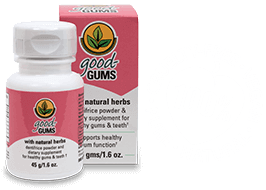Oral Hygiene Is Crucial to Your Overall Health

The interior of your mouth provides an ideal environment for bacteria to thrive: it’s dark, it’s warm, it’s moist, and the foods and drinks you consume provide nutrients for them to feast on.
However, when harmful bacteria accumulate around your teeth and gums, it poses a risk of developing periodontal (gum) disease, characterized by infection and inflammation in the gums and bone surrounding your teeth. Kimberly Bray, a professor of dental hygiene at the University of Missouri-Kansas City, suggests that such oral conditions can impact the rest of your body.
Limited yet growing research indicates associations between periodontal disease and various health conditions, including diabetes, heart disease, respiratory infections, and dementia. Dr. Bray acknowledges the incomplete understanding of how oral bacteria precisely affect overall health, given the limited and inconclusive existing research. However, some conditions are more associated with oral health than others.
Health issues linked with oral health
Approximately 47 per cent of individuals aged 30 and older in the United States have some form of periodontal disease, according to the Centers for Disease Control and Prevention.
In its early stage, known as gingivitis, gums may exhibit symptoms such as swelling, redness, tenderness, and easy bleeding. If untreated, gingivitis can progress to periodontitis, a more severe form where gums may recede, bone loss can occur, and teeth may loosen or fall out.
In cases of periodontitis, bacteria and their harmful byproducts can enter the bloodstream, potentially spreading to different organs, warns Ananda P. Dasanayake, a professor of epidemiology at the New York University College of Dentistry. This dissemination may happen during dental cleaning, flossing, or in the presence of cuts or wounds inside the mouth.
Untreated inflammation in the mouth can lead to the spread of proteins responsible for inflammation throughout the body, potentially causing damage to other organs.
Diabetes
Dr. Bray emphasizes that the most evidenced association between oral health and disease is the two-way relationship between periodontal disease and diabetes. While the exact mechanisms remain unclear, a 2017 review suggested that systemic inflammation from periodontal disease could negatively impact insulin signaling and response. Another study found that treating periodontal disease in diabetics led to a 12 to 14 per cent reduction in overall healthcare costs. “You treat periodontal disease, you improve the diabetes,” Dr. Dasanayake said.
Pneumonia
Dr. Frank Scannapieco, a professor of oral biology, warns that inhaling large amounts of oral bacteria may result in bacterial aspiration pneumonia, particularly observed in hospitalized patients or older adults in nursing homes. Dr. Martinna Bertolini, an assistant professor of dental medicine, highlights the importance of preventive dental care, such as professional cleanings and antibiotic therapy, to reduce the risk of this pneumonia.
Cardiovascular Disease
In a 2020 report, an international team of experts established a significant link between periodontitis and heart-related conditions. While the exact connection is unclear, evidence suggests that periodontal bacteria may travel to the arteries in vascular disease patients, potentially contributing to the disease’s development. The American Heart Association noted in 2012 that gum inflammation is associated with higher levels of inflammatory proteins linked to poor heart health. Research also indicates that better oral hygiene practices are linked to lower rates of heart disease.
Pregnancy Complications
Dr. Dasanayake notes associations between severe periodontal disease and preterm, low birth weight babies. Treating periodontal disease during pregnancy has been shown to improve birth weight and reduce the risk of preterm birth and fetal or newborn death. In a 2009 study, researchers found that oral bacteria could reach the placenta, potentially contributing to chorioamnionitis—a serious placental and amniotic fluid infection.
Dementia
Research into the role of oral health in dementia, particularly Alzheimer’s disease, is growing. Dr. Scannapieco says, “Bacteria that are found in the mouth actually have been identified in the brain tissue of patients with Alzheimer’s.” In a recent review, scientists noted that bacteria from the mouth, identified in the brain tissue of Alzheimer’s patients, may affect the brain directly through central nervous system infection or indirectly by inducing chronic systemic inflammation. However, there is no evidence that oral bacteria alone can cause Alzheimer’s; periodontal disease is considered one of many risk factors for those predisposed to dementia.
Other Conditions
Dr. Bray highlights robust links between oral bacteria and conditions like rheumatoid arthritis and osteoporosis. Emerging research is also connecting oral bacteria to kidney and liver disease, as well as colorectal and breast cancers.
However, confirmation of these links requires further research, and it remains uncertain whether regular dental care and periodontal treatments can prevent or improve these conditions.

What You Can Do
Maintaining good oral health involves following classic dental care advice—brushing your teeth twice a day and flossing daily. Being proactive about oral health is essential, as it plays a crucial role in your overall well-being.
Dr. Scannapieco says, “Not all people really appreciate their oral health, and they’re only reminded of it when they have a toothache or some pain.” But giving regular attention and being proactive in maintaining your oral health is just as vital as exercise, diet, or any other aspect of your overall well-being.
In addition to adopting a healthy diet and lifestyle, opting for a natural oral health product free from toxins and chemicals is undoubtedly the most beneficial step you can take for your overall well-being, especially your oral health.
Foremost, we suggest eliminating the use of traditional toothpaste. While we acknowledge this might be a tall order for some, most kinds of toothpaste contain harmful toxins and chemicals that can adversely affect your health, both oral and otherwise. Even so-called “natural” toothpaste options from health food stores often contain glycerin, which forms an invisible coating on teeth and gums, acting as a barrier to essential nutrients and impeding the body’s natural healing processes significantly.
Good-Gums is a gum health solution crafted from 100% natural ingredients, rich in vital nutrients that are readily absorbed by your gums, providing nourishment for your entire body.
Our formula includes myrrh, peppermint, baking soda, French grey sea salt, cinnamon, cranberry, vitamin C, and citrus bioflavonoids—nothing more! If you’re interested in understanding the potent and powerful qualities of each ingredient we use, please refer to our detailed ingredients list.
Your mouth serves as a window reflecting your overall bodily health. By prioritizing gum health, you aren’t just warding off gum disease; you’re contributing to the well-being of your entire body.
Click here to experience the benefits of Good-Gums.

Subscribe To Our Newsletter
Be the first to receive all our news, offers and natural oral health tips and articles.


